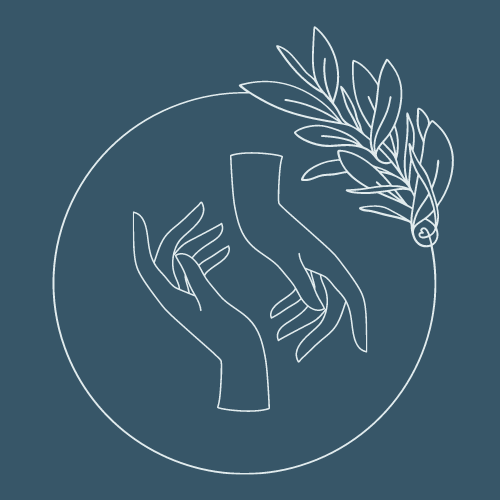6 Things You Probably Didn’t Know About Massage Therapy
Welcome to my first blog post! The intriguing title probably brought you here, and I’m glad it did. Many of us have questions about massage therapy—I certainly did.
After all, what is it really? Who does it truly benefit? Why should I consider it? These are all understandable questions, with, thankfully, very simple answers. I want to start by emphasizing a true statement:
1. Massage therapy, at its core, is a means of preventative healthcare.
Excuse me?! Getting a massage will make me healthier? Yes.
Although many see it as a luxurious form of pampering oneself— and, thankfully, that’s one of the wonderful pros that comes along with it—it is alternative, preventative healthcare. Looking at massage therapy in its historical context helps shed some light on this, which leads us to:
2. It’s not a new fad.
As early as 3000 BCE ancient Chinese texts document the medical benefits of massage therapy.
In ancient India, massage was actually considered one of the “duties of everyday life”.
Athletes in ancient Greece employed massage to keep their bodies in peak condition prior to competitions.
Hippocrates, the father of medicine, instructed his physician colleagues on the benefits of massage to help the body heal itself.
In Rome, during the first century of BCE, Galen, a physician to many emperors, began using massage therapy to treat different types of physical injures and diseases.
Even Julius Caesar, the Emperor of Rome, is said to have demanded his daily baths and massage for the relief of neuralgia and prevention of epileptic attacks.
During World War 1, massage was used to treat patients who suffered from nerve injury or shell shock!
Massage therapy is not a new thing that’s sprung up just within the past fifty years. It dates back to ancient times as a historically proven health practice and is continuing to grow in new and revolutionary ways today.
3. Massage therapy is revolutionizing healthcare as we know it.
Massage has been proven to:
decrease signs of postpartum depression in mothers
reduce cancer patient’s pain and boost their overall mood
reduce depression and anxiety
normalize high blood pressure
improve weight gain in preemie babies
improve lung function in children with asthma
—all proven through research and scientific studies today that are at our fingertips through the Google search engine. We have given massage therapy such little limelight and discussion when it comes to the topic of holistic, alternative, natural healthcare. We lump it with the idea of a pedicure or facial and see it as an expense for our luxury, not as an investment in our health. We have minimized its great potential, because it has been advertised to us the wrong way.
So this is great, you say, but can it benefit me? Yes.
4. Massage therapy is for everyone—not just for the elite.
It is not in any way limited to one specific type of people group; it is not only for high-class members of society; and it is not only useful to you when your muscles are sore after an intensive workout (although that’s certainly a good reason to book a massage).
It offers specific benefits to YOU, no matter what age you are, male or female, athlete or sedentary businessman. However…
5. Massage therapy has many different types that will NOT be for everyone.
When I say massage therapy is for everyone that does not mean each form of massage therapy is, as there are numerous different forms of massage therapy that I couldn’t list here for the sake of time.
The blessing of there being numerous forms of massage mean each form specifically targets a different person’s specific needs. So when I tell you massage therapy is for YOU, I’m not saying each type of massage is (that would be overwhelming), or that even each type of massage therapist is (not one of us is the same.
We each have our own unique personalities that come with our own preferred styles and techniques of bodywork), but that there IS one designed to meet your needs, your preferences, and your health goals. And so comes the more important question: “How do I know what type of massage is for me?” Glad you asked. I cover that in my next blog post— stay tuned for Sunday.
In the end, we all make time for what we care about, and are all responsible for our own individual health. Your doctor, your physical therapist, your chiropractor, your massage therapist— although all wonderful— are not ultimately responsible for your physical health; you are.
It was massage therapy that woke me up to this fact. It provided me with an awareness of where I hold my tension, emotional and physical, which has always been in my neck and upper shoulders. If I’m stressed, my neck and upper shoulders are the first places I feel it.
But having that awareness has helped me know how to resolve it. After all, if you’re not aware you have a problem, how will you ever resolve the issue? This is one of the many wonderful blessings of massage…
6. Massage therapy helps you to help yourself.
It does that by providing you with an awareness of what is tense in your own body (for instance, many people do not realize they have one shoulder that is higher than the other until they get a massage!), where it’s tense, and oftentimes why it’s tense— therefore helping you realize what muscles need to be stretched, what muscles need to move more, what physical stressors you need to purge from your life (such as wearing shoes with no supportive arch) and how to better your health as a whole.
I sincerely hope this post gave you a glimpse of how massage therapy can make your health vibrant and full, as it is meant to be.
Happy Monday all. Till next time!
